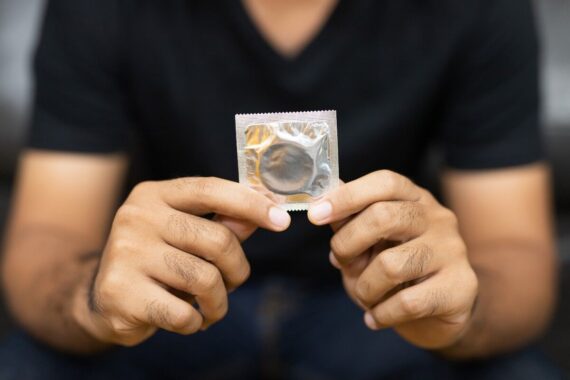‘Concerning acceleration’ in drug-resistant gonorrhoea ahead of vaccine programme

Public health officials have warned of a ‘concerning acceleration’ in cases of antibiotic-resistant gonorrhoea in England.
A report from the UK Health Security Agency (UKHSA) found that while diagnoses of gonorrhoea dropped by 16% overall in 2024, those resistant to ceftriaxone were being detected more frequently.
This includes 14 cases reported in the first five months of 2025 – greater than the number of cases reported for the whole of the previous year (13 cases).
The data shows that six of the 14 cases in 2025 have been extensively drug-resistant cases, resistant to ceftriaxone and to second-line treatment options.
Most ceftriaxone resistant cases are associated with travel to or from the Asia-Pacific region, where the prevalence of ceftriaxone resistance is high, UKHSA said.
In total there were 71,802 diagnoses of gonorrhoea in 2024, compared with 85,370 in 2023, the annual sexually transmitted infections report showed.
It also reported that in England early-stage syphilis diagnoses rose 1.7%, from 9,375 in 2023 to 9,535 in 2024.
The overall figure for syphilis, including late-stage syphilis or complications from the infection, increased 5% from 12,456 in 2023 to 13,030 in 2024.
Cases of chlamydia fell 13%, from 194,143 diagnoses in 2023 to 168,889 in 2024, while people diagnosed for the first time with genital warts also dropped.
But among women aged 15 to 24 who eligible for the National Chlamydia Screening Programme, there was a 10.7% decrease in the number of tests carried out, from 673,102 to 601,295.
Sexual health services across the UK will roll out a ‘world-first’ gonorrhoea vaccine programme to eligible patients from early August.
NHS England has announced that the existing vaccine for meningococcal B disease, 4CMenB, will be offered to gay and bisexual men who have a recent history of multiple sexual partners or a STI.
GPs are often the first point of contact for patients with suspected STIs, but current guidance recommends referring all suspected and confirmed cases of gonorrhoea to local sexual health clinics.
These are also best placed for administering the recommended treatment of ceftriaxone 1g intramuscularly, carrying out cultures, test-of-cure, and handling partner notification, according guidance.
However, if referral is not possible and the patient is unlikely to be seen by sexual health services, GPs should follow the national gonorrhoea management guidelines for treatment and follow-up.
Dr Hamish Mohammed, consultant epidemiologist at UKHSA, said: ‘Levels of STIs in this country remain a big threat to sexual wellbeing.
‘From August, eligible people will also be offered vaccination to reduce the risk of gonorrhoea and we expect to see the immunisation programme have an impact on diagnoses of this infection in coming years.’
Dr Amanda Doyle, national director for primary care, community, vaccination and screening services at NHS England, said: ‘STIs can have a major impact on your health so it’s good to see rates of gonorrhoea coming down and why, last month, we announced the rollout of the world-first vaccination programme for gonorrhoea which is a crucial step forward in providing protection against the infection.’
Portfolio careers
What is the right portfolio career for you?

Visit Pulse Reference for details on 140 symptoms, including easily searchable symptoms and categories, offering you a free platform to check symptoms and receive potential diagnoses during consultations.












